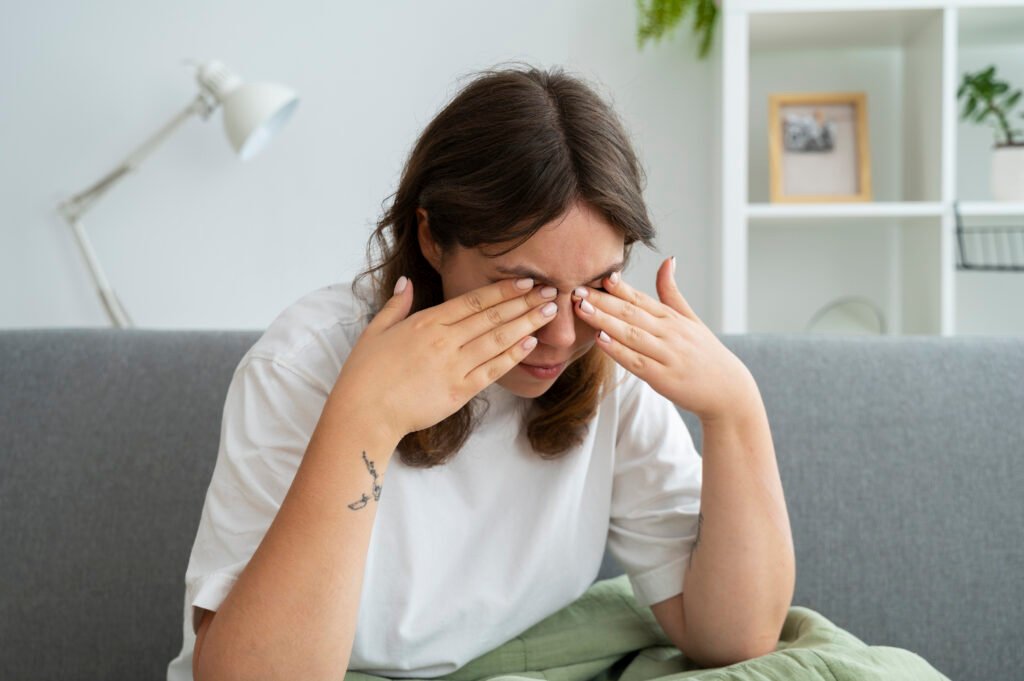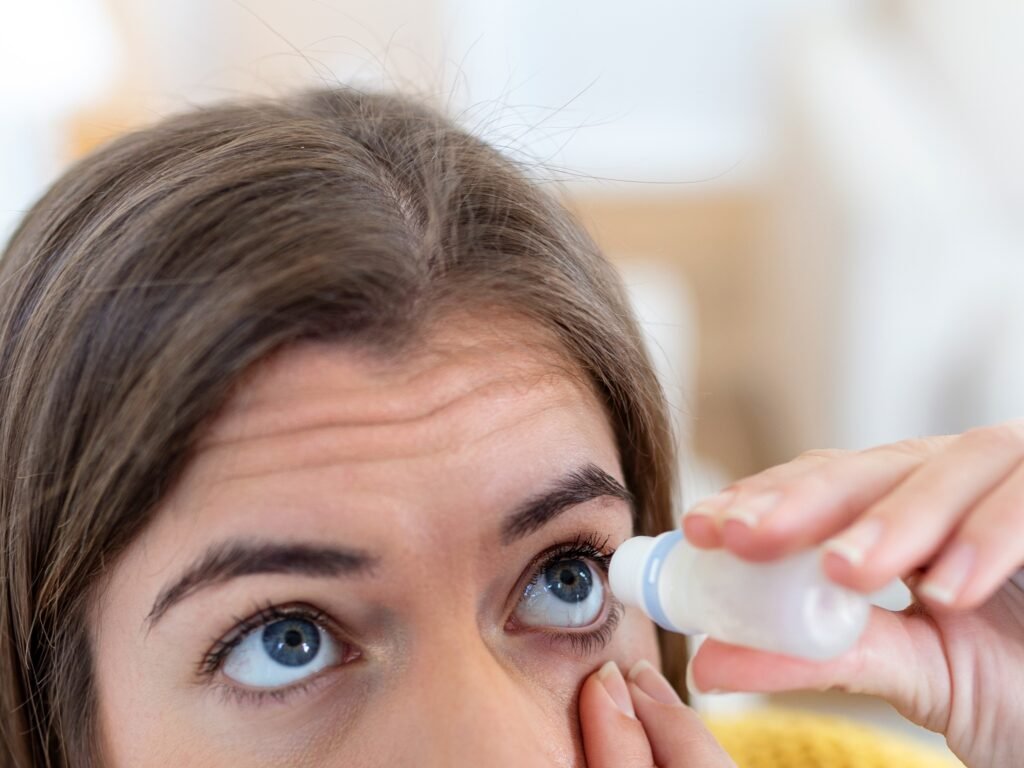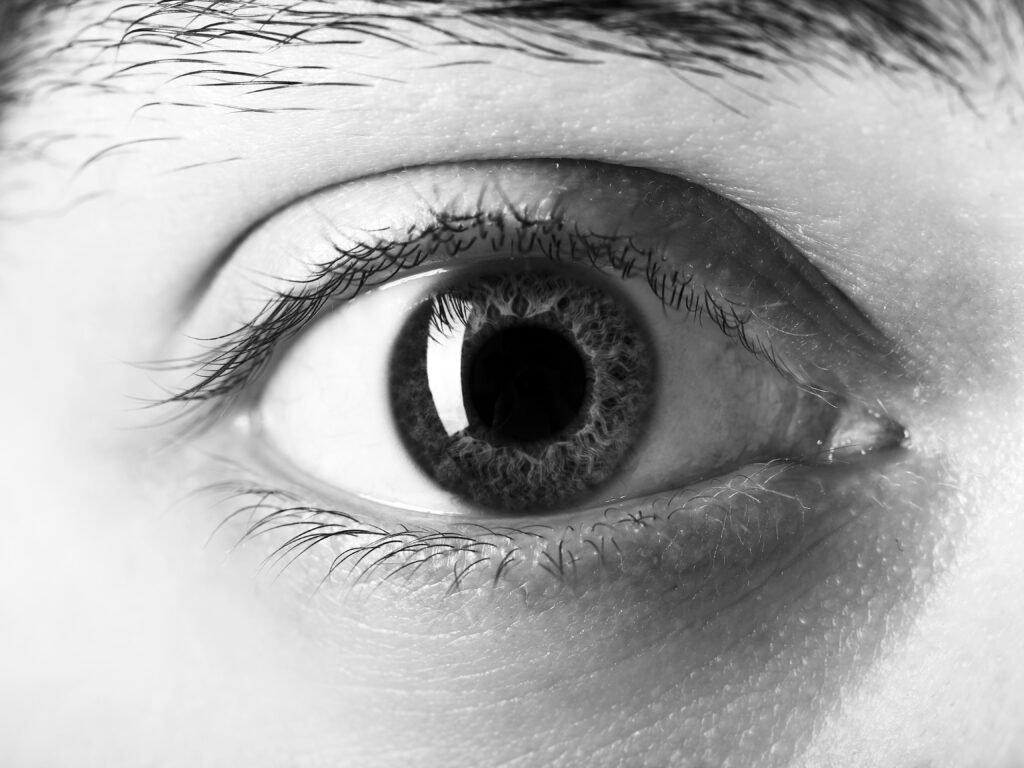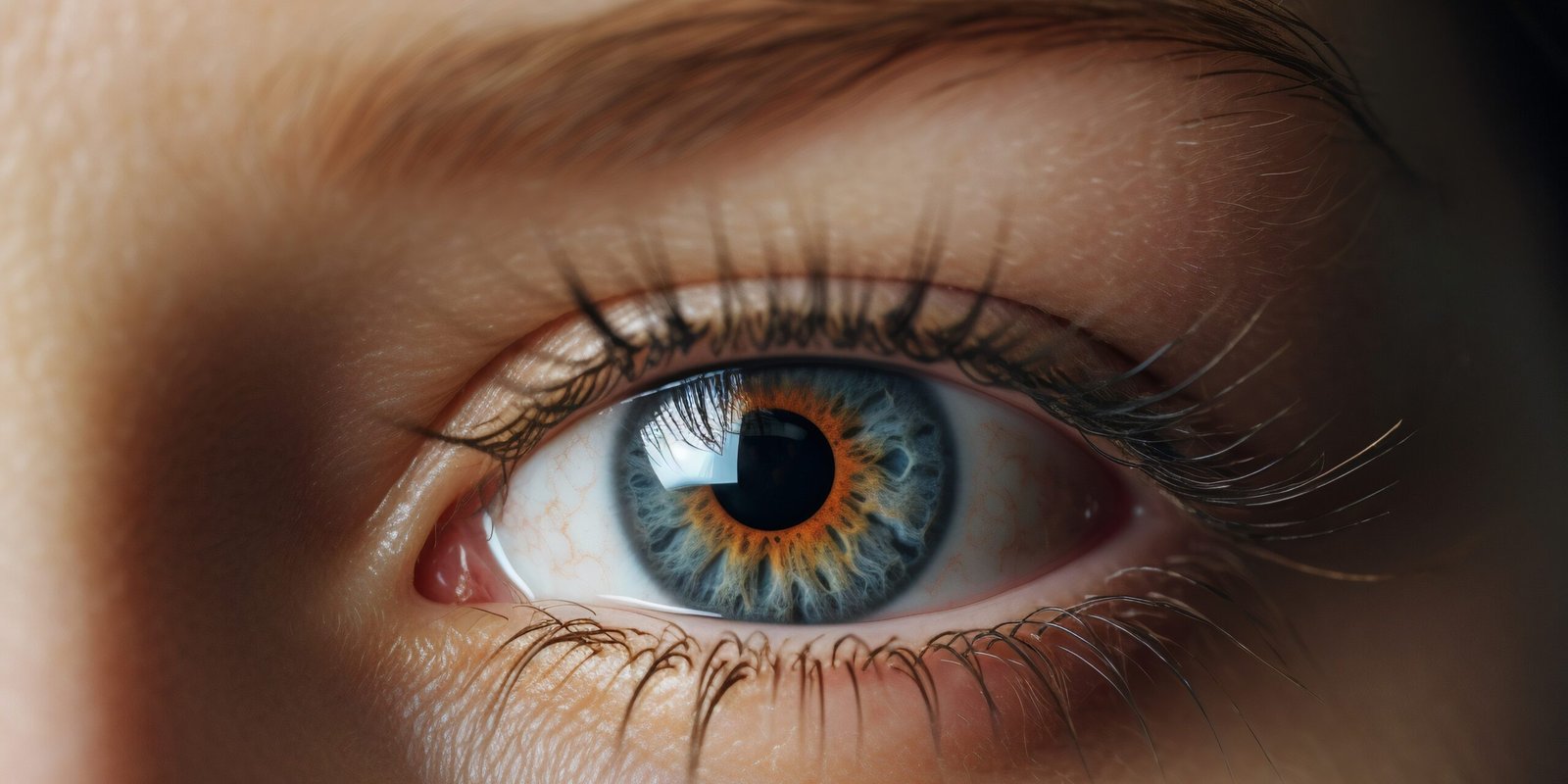Table of Contents
Itchy eyes can be an irritating and uncomfortable experience, often accompanied by redness, swelling, and a persistent urge to rub them. While occasional eye itching may not be cause for concern, chronic or severe cases could indicate an underlying issue that requires attention.
Whether you’re experiencing occasional itching due to allergies or dealing with persistent symptoms related to dry eye syndrome or other underlying conditions, this page is your go-to resource for understanding the causes, symptoms, and effective treatments for itchy eyes. From exploring the various triggers behind eye itching to discovering practical tips and home remedies for relief, we’re here to provide you with the knowledge and insights you need to keep your eyes comfortable and healthy. Let’s dive in and banish that itch for good!
CAUSES OF ITCHY EYES

Itchy eyes can be a frustrating and uncomfortable experience, often accompanied by redness, irritation, and a constant urge to rub them. Understanding the various causes behind this common symptom is crucial for effective management and relief. In this brief overview, we’ll explore the primary factors contributing to itchy eyes, ranging from allergies and dry eye syndrome to infections and environmental triggers. By identifying the root cause, individuals can better address and alleviate their symptoms, leading to improved eye health and comfort.
- Allergies: Allergic conjunctivitis is a common cause of itchy eyes. Exposure to allergens such as pollen, dust, pet dander, or mould can trigger an allergic reaction, leading to inflammation and itching.
- Dry Eye Syndrome: Insufficient tear production or poor tear quality can result in dry eyes, causing itching, redness, and a gritty sensation. Factors such as ageing, hormonal changes, certain medications, or environmental conditions like windy or dry climates can contribute to dry eye syndrome.
- Conjunctivitis: Also known as pink eye, conjunctivitis can be caused by viral or bacterial infections, leading to inflammation of the conjunctiva (the thin, transparent layer covering the white part of the eye). Itchy, red eyes are common symptoms of this contagious condition.
- Contact Lenses: Improper use or wearing of contact lenses can cause eye irritation and itching. Extended wear, expired lenses, poor hygiene, or allergic reactions to lens solutions can all contribute to discomfort.
- Environmental Factors: Exposure to smoke, pollution, or irritants like chemicals or chlorine in swimming pools can irritate the eyes, leading to itching and inflammation.
- Blepharitis: This condition involves inflammation of the eyelids, often due to bacterial overgrowth or poor eyelid hygiene. Itchy, red-rimmed eyes, along with crusty eyelashes, are common symptoms of blepharitis.
- Eye Strain: Prolonged use of digital devices, reading in poor lighting, or focusing for extended periods without breaks can strain the eyes, leading to discomfort, dryness, and itching.
TREATMENT OPTIONS

When it comes to addressing itchy eyes, a range of treatment options exists to provide relief and comfort. From over-the-counter remedies to prescription medications and simple home interventions, understanding the available treatments is essential for managing this common discomfort effectively. In this brief overview, we’ll explore the diverse approaches to treating itchy eyes, empowering individuals to find the most suitable solution for their specific needs and underlying causes.
- Over-the-Counter Eye Drops: Antihistamine or lubricating eye drops can relieve itching and irritation caused by allergies or dry eyes. These drops help soothe the eyes and reduce inflammation.
- Prescription Medications: In cases of severe allergies or persistent symptoms, your doctor may prescribe stronger medications such as corticosteroid eye drops, mast cell stabilizers, or oral antihistamines to manage inflammation and itching.
- Artificial Tears: Lubricating eye drops or ointments can help alleviate dryness and soothe itchy eyes by providing additional moisture and lubrication.
- Warm Compresses: Applying a warm compress over closed eyelids can help loosen crusts, reduce inflammation, and alleviate itching associated with conditions like blepharitis or dry eyes.
- Cold Compresses: In cases of allergic conjunctivitis or inflammation, a cold compress can help constrict blood vessels, reduce swelling, and relieve itching and discomfort.
- Avoiding Triggers: Identify and avoid triggers that exacerbate itching, such as allergens, smoke, or environmental irritants. Minimizing exposure can help prevent recurring symptoms.
- Proper Contact Lens Care: Follow proper hygiene practices for handling and wearing contact lenses. Clean and disinfect lenses regularly, avoid sleeping or swimming with lenses on, and replace them as recommended by your eye care professional.
HOME REMEDIES FOR ITCHY EYES

Seeking relief from itchy eyes doesn’t always necessitate a trip to the pharmacy. Simple yet effective home remedies can often provide soothing relief from discomfort. Let’s explore a variety of natural solutions and DIY treatments that can help alleviate itching, redness, and irritation of the eyes. By harnessing the power of readily available ingredients and gentle practices, individuals can find comfort and relief from itchy eyes in the comfort of their own homes.
- Cold Milk Compress: Soaking a clean cloth in cold milk and placing it over closed eyelids for a few minutes can help soothe itching and reduce inflammation.
- Cucumber Slices: Chilled cucumber slices applied to closed eyelids can provide a cooling effect, reduce puffiness, and relieve itching and irritation.
- Tea Bags: Cooled, dampened tea bags (preferably chamomile or green tea) can be placed over closed eyelids to alleviate itching and inflammation due to their anti-inflammatory properties.
- Aloe Vera Gel: Applying pure aloe vera gel to the affected area can help moisturize dry, itchy skin around the eyes and reduce irritation.
- Warm Tea Compress: Steep a chamomile tea bag in warm water, allow it to cool slightly, then place it over closed eyelids for a few minutes to soothe itching and inflammation.
- Honey and Water Rinse: Mixing raw honey with warm water and using it as an eye rinse can help relieve itching and discomfort, thanks to honey’s antibacterial and soothing properties.
- Omega-3 Fatty Acids: Incorporating foods rich in omega-3 fatty acids, such as salmon, flaxseeds, or walnuts, into your diet can help improve tear quality and reduce symptoms of dry eyes and itching.
CONSEQUENCES

Itchy eyes may seem like a minor inconvenience, but persistent or untreated itching can lead to various consequences that affect both eye health and overall well-being. Here are some potential consequences of leaving itchy eyes unaddressed:
- Excessive Rubbing: Constantly rubbing itchy eyes can lead to mechanical irritation and trauma to the delicate tissues around the eyes. This can cause redness, swelling, and further aggravate the itching sensation.
- Eye Infections: Scratching or rubbing itchy eyes with dirty hands can introduce harmful bacteria or viruses into the eyes, increasing the risk of developing infections such as bacterial conjunctivitis or styes (hordeolum). These infections can cause additional discomfort, and discharge, and require medical treatment.
- Corneal Abrasions: Vigorous rubbing of the eyes, particularly with long or sharp nails, can result in corneal abrasions or scratches on the surface of the cornea. Corneal abrasions can cause intense pain, and light sensitivity, and may lead to complications such as infections or corneal ulcers if left untreated.
- Compromised Vision: Chronic itching and irritation can disrupt the tear film and compromise the quality of vision. Dry eye symptoms, such as blurry vision, fluctuating vision, or sensitivity to light, may worsen over time if not addressed appropriately.
- Disruption of Daily Activities: Severe itching can interfere with daily activities such as reading, driving, or working on a computer. It can also disrupt sleep patterns, leading to fatigue and decreased productivity during the day.
- Psychological Impact: Chronic eye itching can take a toll on mental well-being, causing frustration, anxiety, or stress. It may also affect self-esteem, particularly if visible symptoms such as redness or swelling are present.
- Underlying Health Conditions: In some cases, persistent eye itching may be a sign of underlying health conditions such as allergic reactions, autoimmune disorders, or systemic diseases like diabetes or thyroid disorders. Ignoring persistent itching without addressing its root cause may delay the diagnosis and treatment of these underlying conditions.
In conclusion, understanding the causes and finding effective treatments for itchy eyes is crucial for maintaining eye health and overall well-being. By exploring the diverse factors that contribute to eye itching, from allergies and dry eye syndrome to infections and environmental triggers, individuals can better identify and address their specific needs. Moreover, implementing practical strategies such as proper eye hygiene, minimizing exposure to irritants, and incorporating soothing home remedies can provide much-needed relief from discomfort.
However, it’s important to remember that persistent or severe itching may indicate underlying issues that require professional evaluation and treatment. Therefore, if symptoms persist or worsen despite home remedies, seeking guidance from an eye care professional is advisable. With proper care and attention, you can alleviate itching, reduce the risk of complications, and enjoy clear, comfortable vision. Stay informed, proactive, and empowered in managing your eye health, and say goodbye to itchy eyes for good. Here’s to brighter days ahead and happier, itch-free eyes!
Discover the Anatomy and Function of Your Eyes: Tips for Maintaining Healthy Vision Await! Click here to learn more.

